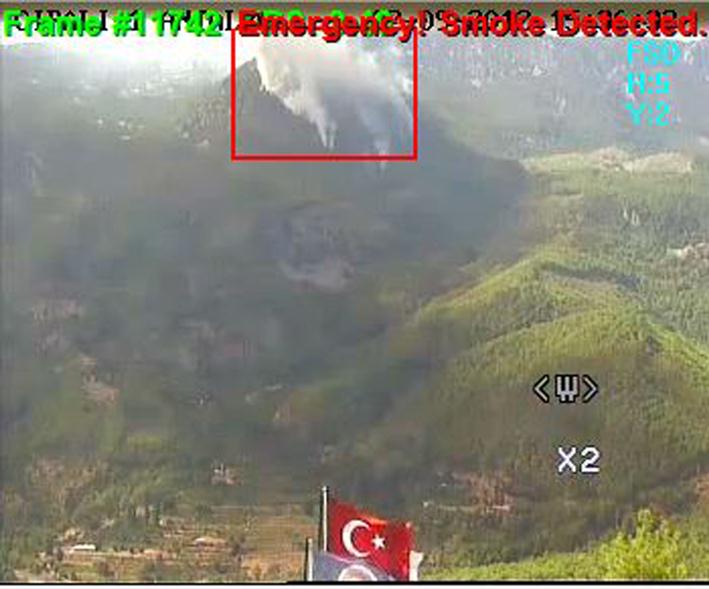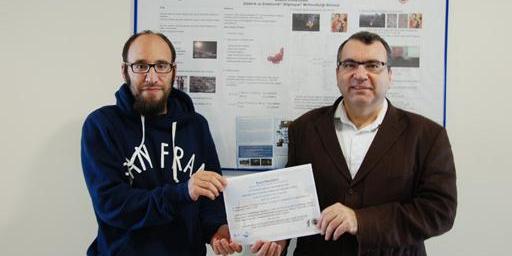EEE Professor and Students Win "Best Paper" Award at UNESCO Conference on Cultural Heritage Preservation
Kıvanç Köse and Prof. Enis Çetin
Prof. Enis Çetin of the Department of Electrical and Electronics Engineering and three of his students, Osman Günay, Kıvanç Köse and Fatih Erden, have received the "Best Paper" award at the 4th International Conference on Progress in Cultural Heritage Preservation, organized by UNESCO and the Cyprus Presidency of the Council of the European Union.
The conference, which took place October 29-November 3, focused on the use of cutting-edge technologies for the preservation, conservation, digitalization and presentation of cultural heritage content (including archeological sites, artifacts, monuments, libraries, archives and museums).
The conference agenda included hundreds of oral and poster presentations, as well as workshops and demonstrations. The Bilkent EEE team's paper was entitled "Flame Detection for Video-Based Early Fire Warning for the Protection of Cultural Heritage."
The work described in the paper was funded by a project called FIRESENSE (Fire Detection and Management through a Multi-Sensor Network for the Protection of Cultural Heritage Areas from the Risk of Fire and Extreme Weather Conditions, FP7-ENV-2009-1-244088-FIRESENSE), which is a Specific Targeted Research Project (STReP) of the European Union's 7th Framework Programme: Environment (including climate change). FIRESENSE aims to develop an automatic early warning system to remotely monitor areas of archaeological and cultural interest for risk of fire and extreme weather conditions. Since these areas have been treasured and tended for very long periods of time, they are usually surrounded by old and valuable vegetation or situated close to forest regions, which exposes them to an increased risk of fire. Additionally, extreme weather conditions (such as storms and floods) pose great risks for these sites. The project consortium consists of three members from Turkey and six members from other countries -- Greece, Netherlands, Belgium, Italy and Tunisia -- representing six academic and research institutes, two SMEs and one state authority.
 The project started on December 1, 2009, and will end on January 31, 2013. The forest fire detection system developed during the project successfully detected a wildfire near Çıralı (Olympos) in Kumluca, Antalya, in August. (The picture above shows the Çıralı wildfire.) The system is currently in use at Motefferrato-Galceti Park in Prato, Italy, and Dodge Hall at Boğaziçi University in İstanbul. It will soon be installed at two more project test sites: the Temple of Water, Djebel Zaghouan, in Tunisia, and Kaberion, Thebes, in Greece.
The project started on December 1, 2009, and will end on January 31, 2013. The forest fire detection system developed during the project successfully detected a wildfire near Çıralı (Olympos) in Kumluca, Antalya, in August. (The picture above shows the Çıralı wildfire.) The system is currently in use at Motefferrato-Galceti Park in Prato, Italy, and Dodge Hall at Boğaziçi University in İstanbul. It will soon be installed at two more project test sites: the Temple of Water, Djebel Zaghouan, in Tunisia, and Kaberion, Thebes, in Greece.
Detailed information about the fire and smoke detection algorithms developed by the Signal Processing group at Bilkent University, as well as the "Best Paper" article, can be found at www.signal.ee.bilkent.edu.tr.
